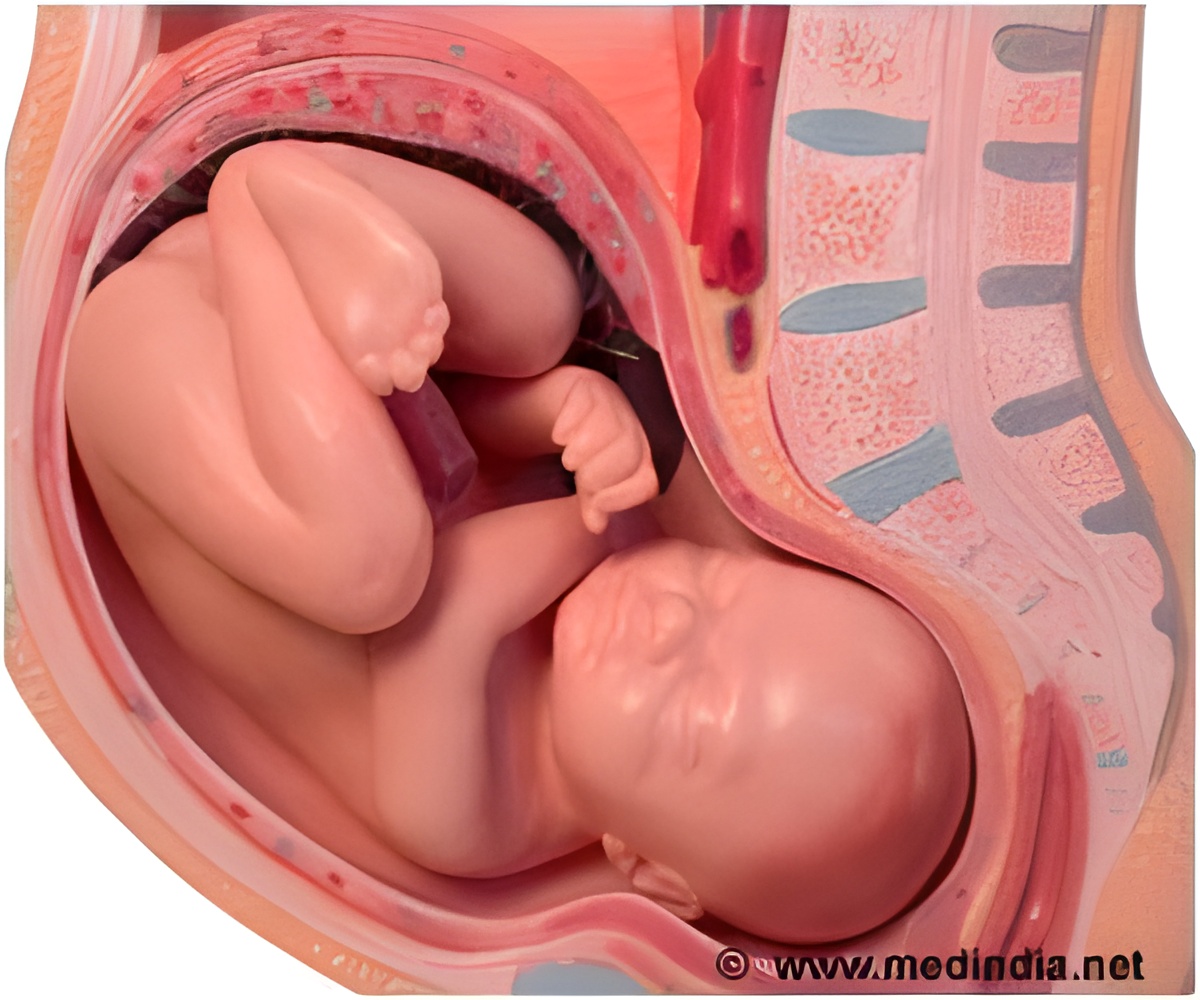New research finds that babies learn how to anticipate touch while in the womb. The research was led by Durham and Lancaster universities.

The researchers carried out a total of 60 scans of 15 healthy fetuses at monthly intervals between 24 weeks and 36 weeks gestation. Fetuses in the earlier stage of gestation more frequently touched the upper part and sides of their heads. As the fetuses matured they began to increasingly touch the lower, more sensitive, part of their faces including their mouths. By 36 weeks a significantly higher proportion of fetuses were observed opening their mouths before touching them, suggesting that later in pregnancy they were able to anticipate that their hands were about to touch their mouths, rather than reacting to the touch of their hands, the researchers said. Increased sensitivity around a fetus’ mouth at this later stage of pregnancy could mean that they have more "awareness" of mouth movement, they added.
Source-Eurekalert








